Central Market, Phnom Penh, Cambodia
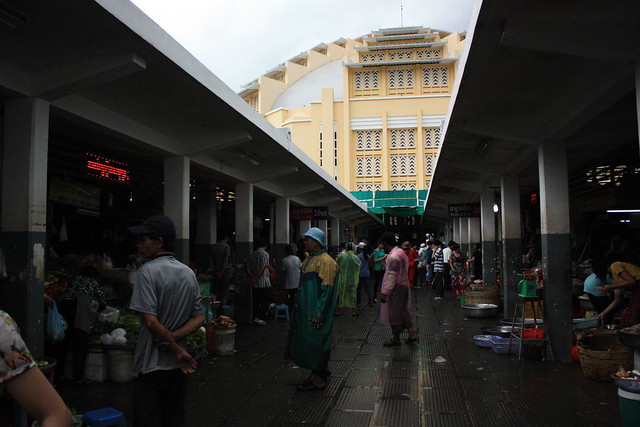
The Central Market in Phnom Penh, after a storm.
Rand always tells me he envies my palate, which cracks me up because it’s such an unlikely compliment. But it comes up time and again, whenever I identify a spice in a dish that he’s unable to, or I catch a whiff of a bakery blocks before he does. Others who’ve noticed it have commented as well, and I usually smile and tap the side of my ever-so-prominent nose and say, “It’s not just for show.”
Goodness, it really isn’t. Sometimes it feels like a superpower. I am the amazing girl WHO CAN SMELL EVERYTHING (note: superpower has very limited application. The X-Men aren’t calling, unless they need help determining whether or not the milk has gone bad).
On our first full day in Cambodia, we went to the Central Market in Phnom Penh. It was the middle of the rainy season and the skies had already opened up over the city. The rain was warm. The inside of the market was damp, and I’ve heard that scents travel better on moist, warm air. It’s part of why shampoo smells so great in the shower.
Everything in the market smelled so strong and strange that it left me dizzy.
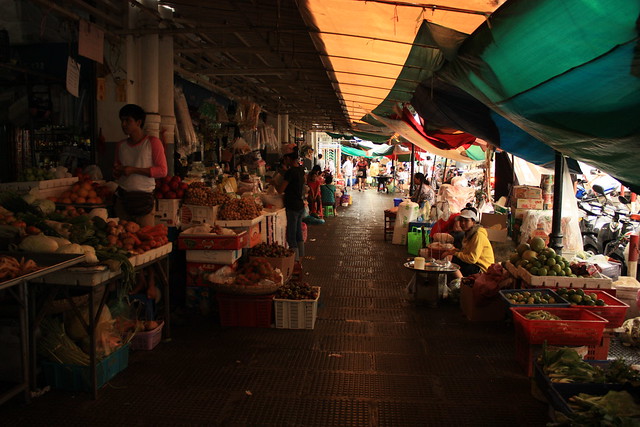
Looking back, I wish I’d taken more photos, chatted with more vendors. I wish I’d bought something. But all my senses seemed to take the backseat to my wonderful nose. I could barely process anything else. I was literally experiencing a sensory overload.
Dried shrimp was the predominant smell in the market, sweet and briney. The air felt thick with it.

I remember the story my uncle’s wife told about the first time she met my grandmother in Rome, some 40-odd years ago. She said my nonna had been at the table, drying anchovies, and the smell in the house was overwhelming. I had to laugh when she said it – the years hadn’t erased the memory for her and even now, she wrinkles her nose and laughs when she recounts it.
By the time I was on the scene, my family’s Italian-ness had been tempered by America a little – they still ate anchovies, but they were cured by someone else. Still, the scents were familiar to me, and so I found the racks of dried fish in Asia strangely welcoming, and not all that foreign.
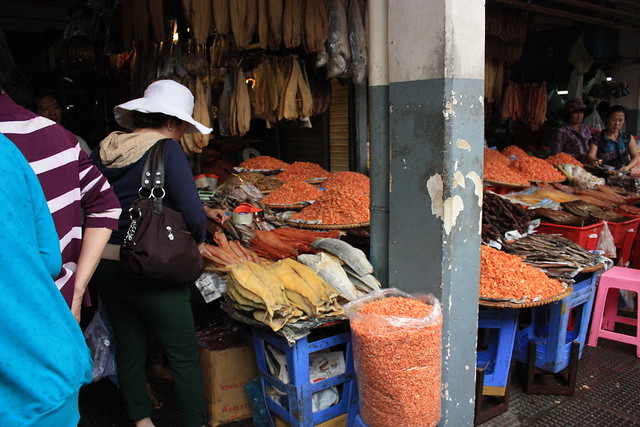
Then there was the durian. I had trouble identifying it at first – I assumed it was a mix of overripe fruit and rotting onions, of produce that would soon be thrown away. It was Nicci who helped me make the connection, days later, that it all came from one source, overpowering everything else.
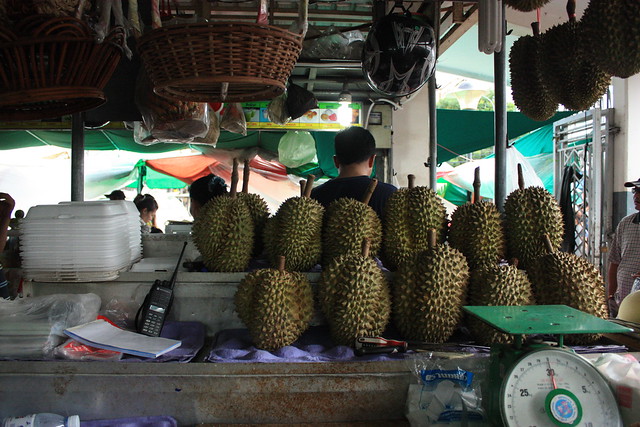
There were masses of prepared food. Donuts and fritters and croquettes, piled high.

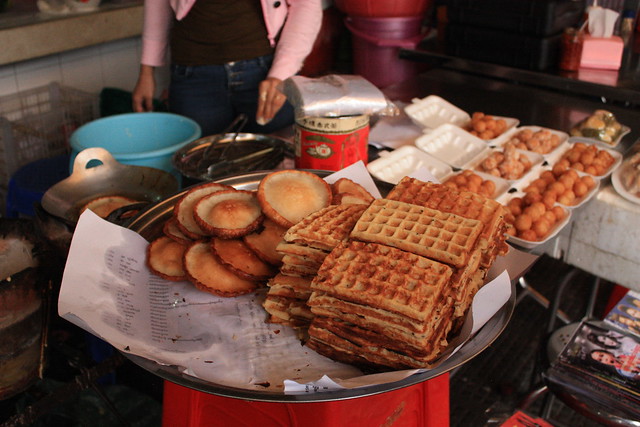
Women sat in front of each of the food stands, absentmindedly batting away flies with fans or plastic bags affixed to long wands. Their hands were in constant motion. So were the flies. If the women stopped waving, the flies would land. So they both swished back and forth, an endless dance over the piles of food.
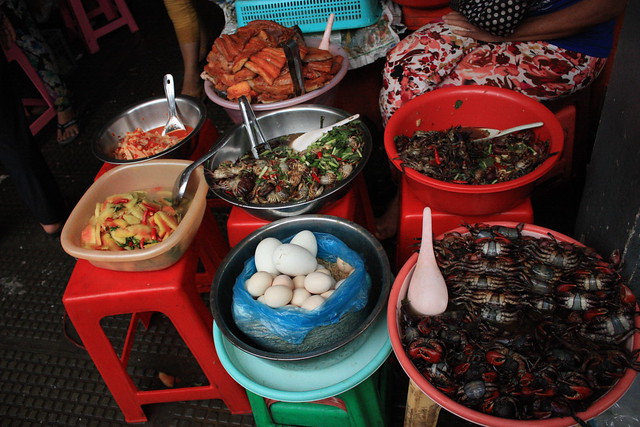
Elsewhere, the food was raw.
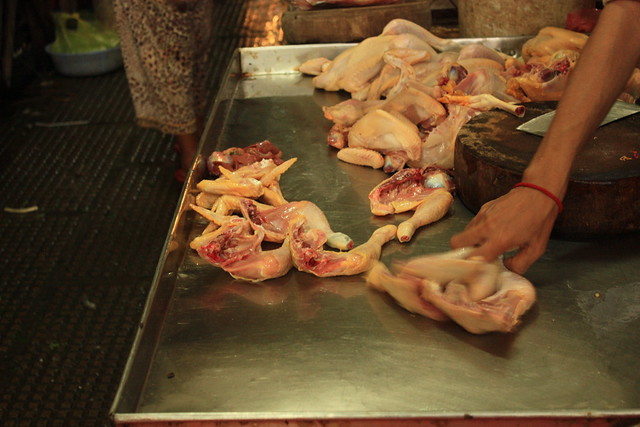
Sometimes very, very raw.
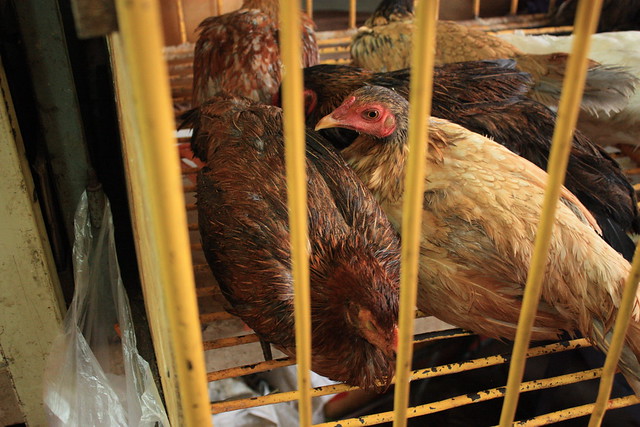
Like, so raw that it was actually making a break for it.
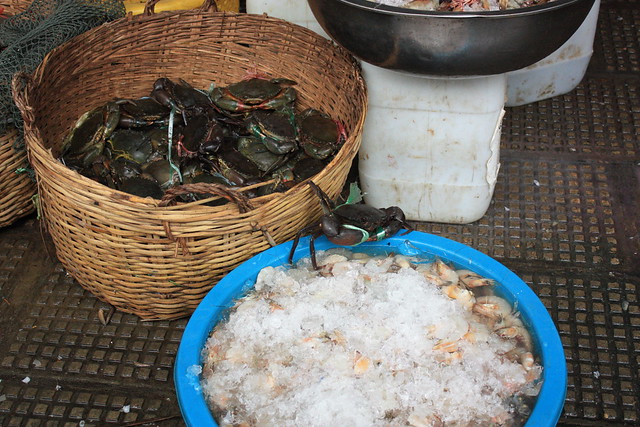
Nicci was cheering on this crab.
I watched fish still wriggling on a table as a woman clubbed them gracefully without breaking a sweat. She was impeccably dressed: skinny jeans, turtleneck, bright red lipstick, like a Khmer Audrey Hepburn. I stared, mesmerized by her composure and efficient brutality. I’m not judging: I eat meat. But I know I couldn’t kill my dinner while looking half that good.
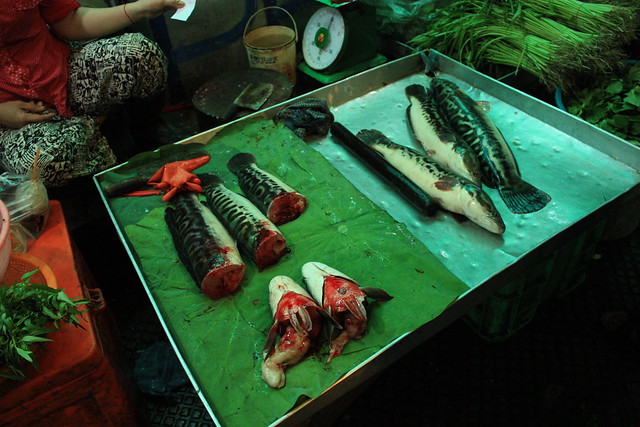
There were fruits that I didn’t recognize, which Nicci would identify for me.
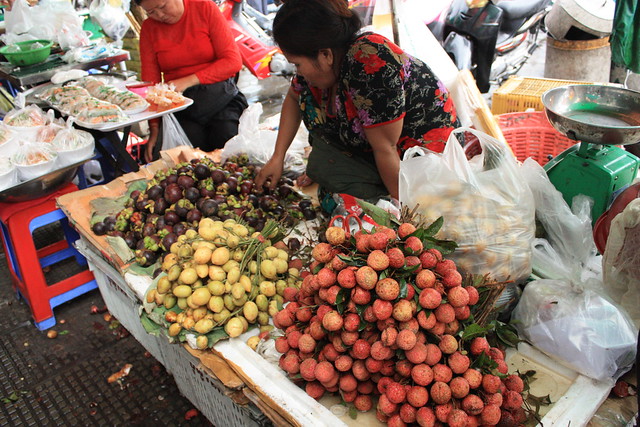
“That’s lychee,” she said, pointing to a bunch of rough-looking reddish-brown globes.
“And those are mangosteens,” she said, of a pile of deep purple, thick-skinned fruits. I nodded, wide-eyed. This was feeling less and less familiar.
The market was arranged in halls that extended out from around a central hub, like spokes of a wheel. We quickly got lost. Only a few of the halls were dedicated to food, but the scents didn’t adhere to any lines of demarcation, and we found ourselves looking at knickknacks, but smelling fish.
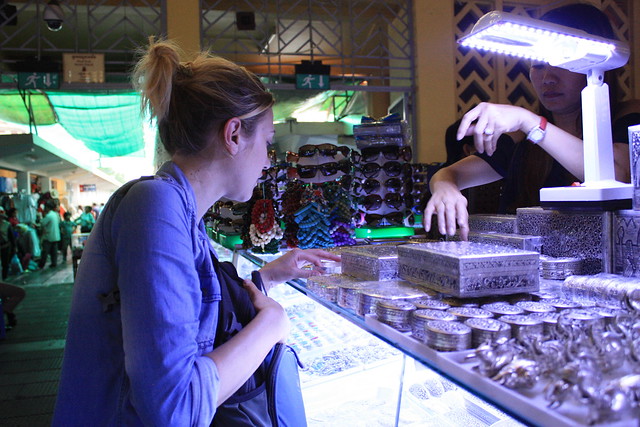
As we walked through, the vendors would call out to us.
“Hello, lady, you buy something …” (a sentence which I’m still unsure of how to punctuate, because I can’t for the life of me determine if it was a question or a statement).
I’d shake my head resolutely time and again.
“No, no,” I’d say, refusing to part with my money. It would be become a trend of mine. I’d find it was painful to let go of a single dollar (this is a nasty by-product of me traveling without my husband. I feel like I can’t spend a dime). I’m lucky Nicci didn’t strangle me.
But on that first day, it didn’t matter. I didn’t want to buy anything. I just wanted to take in the smells of the market. That was souvenir enough.

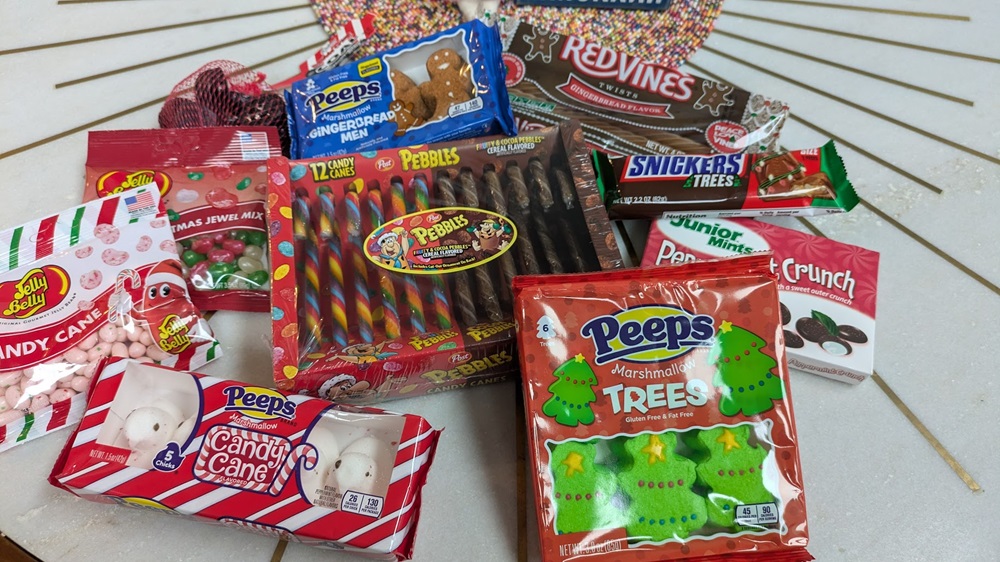
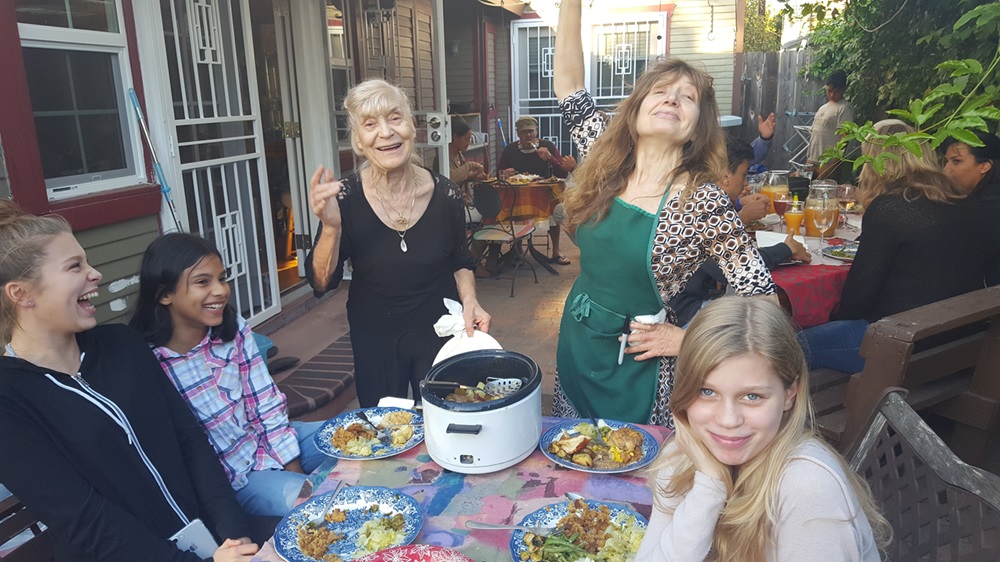


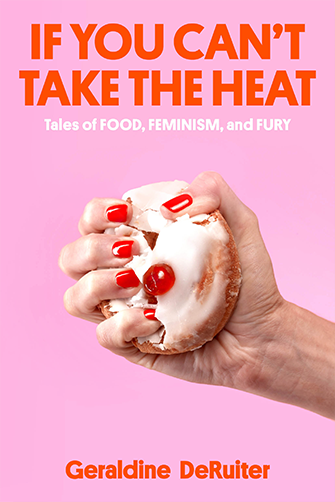



Leave a Comment